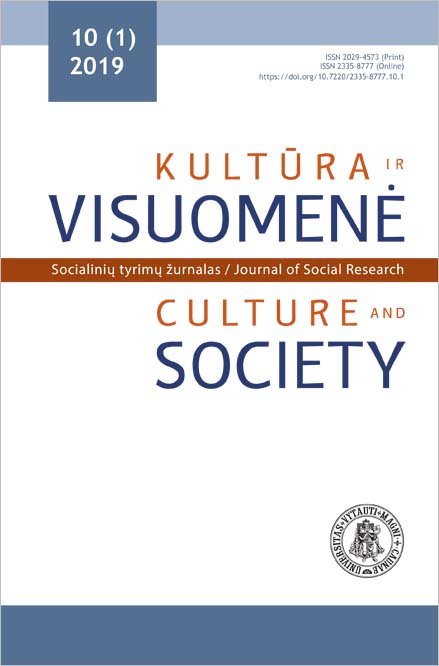Dirbančios šeimos ir prekarizuotas gyvenimas
Working Families and Precarious Life
Author(s): Ieva DryžaitėSubject(s): Gender Studies, Labor relations, Family and social welfare
Published by: Vytauto Didžiojo Universitetas
Keywords: Precarious work; Work feminization; Time; Working family; Work and family balance; Welfare state; Occupation;Care;
Summary/Abstract: This article discusses the changing current employment structure and its impact on working family’s chances to balance personal life and paid work and to reconcile personal, economic, social and psychological interests. Because of the changing employment nature manifested by flexible, less formalized market relationships and growing social insecurity, working families increasingly experience normalization and institutionalization of precarious employment forms in the job market and political sphere. On the one hand, the appearance of new employment forms creates new possibilities for some people but, on the other hand, they also accelerate very intense social problems such as the increasing number of divorces or distanced families, the expansion of depression, overwork, burnouts or even work-based suicides, late childbirth, working people’s poverty, the intensifying sense of social insecurity and gradually decreasing possibilities to ensure appropriate life chances to live a “liveable life.” For this reason, it is very important to stimulate an interdisciplinary and deeply contextual dialog about such dimensions as family, care, paid work and time. The article examines all these dimensions by attempting to elaborate ideas for further discussions and to stimulate more humanistic narrative about a “liveable life” and work-personal life balance in contemporary society.
Journal: Kultūra ir visuomenė: socialinių tyrimų žurnalas
- Issue Year: 10/2019
- Issue No: 1
- Page Range: 99-126
- Page Count: 28
- Language: Lithuanian

